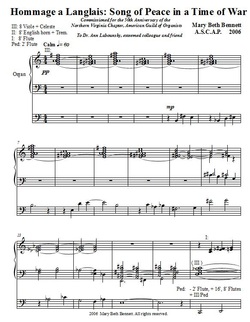

As such, he appropriately named it “Cello Suite No. It’s the prelude to Bach’s first cello suite, the one in the key of G Major. This performance is stripped down because it’s just one instrument, but it’s still quintessentially baroque. Here’s an example of what that looks like: Counterpoint Example: In non-technical jargon, counterpoint is when two or more melodies are played simultaneous in an intertwining fashion. The Baroque period is defined by its technically demanding compositions, and specifically the use of counterpoint. Try listening to some Vivaldi as you make your morning cup of coffee, and see how you enjoy it! This is because our brains actually change the way they interpret and process information throughout the day.įor most of us, our brains think most algorithmically in the morning, so that’s when they’re best prepared to process the complexity of Baroque music. Here’s a fun fact: Since Baroque music is quite technical and mathematic, it's best enjoyed in the morning. This allowed Baroque composers (and all composers thereafter) to write music in a more logical and straightforward way. This is Baroque music for beginners, so all you need to know about the shift from modal to tonal music is that tonal music made it much easier to form concrete chords and harmonies, within a specific musical key. Instruments like the violin and fortepiano (a predecessor to our pianos today) became standardized, musical form and style evolved, and opera grew in prestige and popularity.Īdditionally, the modal forms of the Renaissance gave way to tonal forms in the Baroque era. The Baroque period (1600-1750) came off the heels of the Renaissance and helped bring music into its own. What Is Baroque Music? The Baroque Period Explained That's why I decided to write the article myself, so you don't have to put up with what I did!Ĭlick here to check it out. I would've loved a resource like this when I was starting out, but I couldn't find one. It's a "classical music titles for dummies" type article.

I wrote an article that goes in-depth on classical music naming conventions. Which, just to remind you, is more accurately called “western art music.” Whether you decide to use that term in public or not is up to you.Ĭlassical music titles might seem confusing at first, but they're actually fairly simple once you know the basics. The Baroque, Classical, and Romantic periods compose the vast majority of what people mean by the term “classical music.” Remember, this is classical music for beginners - as such, we're keeping it simple.įor this introduction to classical music, we’re only going to cover the middle three time periods listed above. The Classical Era (now you know why the term is deceiving!).That’s the pretentious-sounding technical term used to cover all of the following periods of music: What we usually refer to when we say “classical music” is actually something more accurately termed “western art music.” However, the term “classical music” is in itself a bit deceiving, because it doesn’t always mean what we think it does. Images of Bach, Beethoven, and Mozart most likely come to mind. When you or I say “classical music,” we typically think of fancy sounding music from 17th-19th century Europe. Now without any further ado, let’s get started! I truly believe it can be the same for you. I know that for me, getting into classical music has been a life-changing experience. My goal for this article is to help you enrich your basic understanding of classical music so you're able to enjoy and appreciate it more.

You'll learn about the main three eras of western art music, and what makes them unique.Īt the end of each section, you'll even get a list of the best pieces from each era, so you can start listening right away. Here you'll get a simple and streamlined introduction to classical music. That's why I consolidated everything I learned into this ultimate beginner's guide. As such, I want to help others who might feel as lost as I did. Trust me, I know what it feels like to not know where to start with classical music. I even took a Yale University course to deepen my understanding of it! Since then, I've learned a lot about classical music. I spent nights Googling variations of “classical music for beginners” and doing tons of reading in order to better understand the topic myself. If you’re anything like I was, you probably have no idea where to start with classical music.


 0 kommentar(er)
0 kommentar(er)
